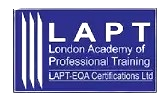Home » Microsoft Security Operations Analyst
SC-200 Microsoft Security Operations Analyst Course
Length
4 days
Price
$2999
Cities
Melbourne, Sydney, Brisbane, Adelaide, Canberra, Perth
Learn More
Why Choose This Course
The Microsoft SC-200 Security Operations Analyst course equips IT professionals with essential skills to detect, investigate, and respond to security threats using Microsoft Sentinel, Microsoft Defender XDR platforms, and Defender for Cloud and Microsoft 365 Defender. Participants learn to rapidly remediate attacks across cloud and on-prem environments, create custom detection logic with Kusto Query Language (KQL), and implement threat-hunting practices—essential capabilities for modern Security Operations Centre (SOC) functions. The practical, lab-based training supports hands-on experience aligning with industry needs.
With cyber threats becoming more sophisticated, organisations require security analysts who can interpret alerts, triage incidents effectively, and guide improvements to threat protection practices. This in-demand role features collaboration with IT teams and leadership to define and enforce security standards. The course aligns with official SC-200 exam content, preparing learners to gain recognition as Microsoft Certified: Security Operations Analyst Associate. A certificate of course attendance is included.
Prerequisites
- There are no formal prerequisites for this course.
Exam
Candidates can achieve this certification by passing the following exam(s):
- Microsoft Security Operations Analyst (SC-200)
Books
- SC-200 course material included.
Delivery
- Instructor-led Classroom Training at our premises
- Live Virtual Online Training attend in real-time from anywhere
- In-House Training at your premises (4+ participants)
Skills Gained
Rapid remediation of active threats across cloud and on-prem environments
Advising on improvements to organisational threat protection practices
Identifying and responding to violations of security policies
Using Microsoft Sentinel for alert triage, investigation, and automation
Writing and applying KQL queries for detection and reporting
Configuring and managing Defender for Endpoint, Cloud, and Microsoft 365 Defender
Integration of Microsoft Defender XDR with security workflows
Threat hunting and forensic investigation techniques
Managing log ingestion and data connectors in Sentinel
Developing playbooks and automation rules
Conducting incident response and mitigation workflows
Establishing security standards and collaborating across IT teams
Audience
Security Operations Centre (SOC) analysts
Incident responders
Threat hunters using Microsoft security tools
Objectives
Understand the role and responsibilities of a security operations analyst
Configure and use Microsoft Sentinel, Defender XDR, and Defender for Cloud
Create and tune KQL queries and detection rules
Develop automation playbooks and incident response workflows
Integrate threat intelligence into security operations
Conduct threat hunting and forensic investigations
Outline
Introduction to Microsoft Sentinel architecture and workspace configuration
Connecting and ingesting logs and data sources into Sentinel
Creating KQL queries for detection and investigation
Building analytics rules for threat detection
Developing playbooks and automation workflows
Managing security incidents and evidence handling in Sentinel
Using user and entity behavior analytics (UEBA)
Integrating threat intelligence into Sentinel alerts
Onboarding and configuring Microsoft Defender for Endpoint
Deployment and management of Defender XDR instruments
Investigating endpoint threats and response actions
Configuring defense settings such as surface reduction rules
Deploying and configuring Defender for Cloud workload protections
Monitoring Microsoft 365 Defender for identity and data threats
Writing detection rules for Microsoft 365 Defender
Creating custom detections and automated responses
Forensic log analysis and incident attribution
Collaboration and communication with organisational stakeholders
Renewal and compliance processes for certification standards
Hands-on scenario workshops aligned with SC-200 exam domains
Price
| Category | Full-Time (Weekdays) | Part-Time (Weeknights) | Part-Time (Weekends) |
|---|---|---|---|
| Days | Mon – Thu | Mon & Tue | Saturdays only |
| Time | 9:30 am to 5:00 pm | 6:00 pm to 9:00 pm | 10:00 am to 5:00 pm |
| Duration | 4 days | 4 weeks | 4 weeks |
| Price | $2999 | $2499 | $2999 |
Terms & Conditions
The supply of this course is governed by our terms and conditions. Please read them carefully before enrolling, as enrolment is conditional on acceptance of these terms and conditions. Proposed course dates are given,
course runs subject to availability and minimum registrations.
Frequently Asked Questions (FAQ's)
Are there prerequisites?
There are no formal prerequisites, though familiarity with cloud or on-prem IT systems is advantageous.
Will this course help me pass the SC-200 exam?
Yes, the course is exam-aligned and includes practical labs to support preparation for the SC-200 exam.
What tools will I gain experience with?
You will use Microsoft Sentinel, Defender for Endpoint, Defender for Cloud, Microsoft 365 Defender, and KQL.
Is hands-on practice included?
Yes, a significant portion of the course involves hands-on labs covering detection, investigation, automation, and response.

Our Partnership
In today’s fast-changing digital world, cybersecurity is more than a necessity—it’s a cornerstone of business and personal safety. Partnering with the National CyberWatch Center allows us to deliver training aligned with global best practices, helping professionals stay ahead of emerging threats and security challenges.
$112,000
Average annual salary for security operations analysts in Australia (around 28% higher than the national IT average).
76%
Employers report that Microsoft security certifications, including SC-200, are preferred or required for SOC and incident response roles.
10.5%
Year-on-year growth in job opportunities for professionals with Microsoft security skills.
150,000+
Active Microsoft security certification holders worldwide.
5,200+
Australian organisations recognise or employ staff certified in Microsoft security technologies.
98%
Student satisfaction rate from our's Microsoft security training programs.
Our Accreditations














